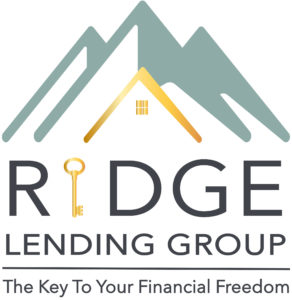In today’s economic landscape, marked by rising interest rates and significant inflation, real estate investors face unique challenges. This guide from Ridge Lending Group offers comprehensive strategies to help you manage and adapt to these conditions, ensuring your investments remain profitable despite economic headwinds.
1. Understand the Economic Climate
Overview of Current Conditions:
- Rising Interest Rates: Often a response to high inflation, rising rates aim to stabilize the economy but can increase borrowing costs. But conversely that can also mean increased tax deductions.
- Inflationary Pressures: Driven by various factors including supply chain disruptions and increased consumer spending, inflation can erode purchasing power and affect property values.
Understanding these elements is crucial for strategizing in today’s market.
2. Refinance and Manage Loans Effectively
Strategic Loan Management:
- Refinancing Options: Consider refinancing existing loans to lock in lower rates before further increases. Analyze different mortgage products to find those best suited to your current situation.
- Debt Structuring: Proper debt structuring can protect against fluctuating rates, potentially saving significant amounts in interest over time.
3. Select Resilient Investment Properties
Choosing the Right Properties:
- Strong Fundamentals: Focus on areas with enduring demand, such as those near major employment centers or in cities with demographic growth.
- Recession-Resistant Qualities: Properties in sectors less affected by economic downturns, such as grocery-anchored retail or multifamily units in prime locations, can offer stability.
4. Timing the Market
Market Cycles Analysis:
- Buying and Selling: Leverage historical data and current market analysis to time your transactions, aiming to buy during lower cycles and sell when values peak.
- Long-Term Perspective: Maintain a long-term perspective to weather short-term fluctuations in market conditions.
5. Mitigate Inflation Impacts
Protecting Your Investments:
- Lease Structuring: Include clauses in leases that adjust rents according to inflation, ensuring your income keeps pace with rising costs.
- Invest in Value-Adding Renovations: Improving properties can increase their appeal and value, offsetting the effects of inflation on your investment.
6. Dive Into Real Estate Sectors That Hedge Against Inflation
Strategic Sector Investment:
- Real Assets: Properties are tangible assets, which historically have acted as a hedge against inflation. Their physical nature and intrinsic value can provide a buffer against the diminishing value of money.
- Diverse Portfolio: Diversifying across different types of real estate, from residential to commercial and industrial, can spread risk and increase potential for returns.
7. Prepare for the Future
Long-Term Strategic Planning:
- Anticipate Market Shifts: Stay informed about global economic trends and policy changes that could impact the real estate market.
- Adaptive Strategies: Develop flexible strategies that allow you to quickly adapt to changing circumstances, ensuring you remain competitive.
Expert Insights and Real-World Applications:
Throughout this guide, expert opinions and case studies from seasoned professionals highlight practical applications of these strategies, providing you with a road map to navigate these challenging times.
Thriving in a Volatile Market
By employing these strategies, real estate investors can not only survive but thrive during periods of high interest rates and inflation. Ridge Lending Group is committed to supporting your journey, offering tailored solutions and expert advice to enhance your investment success.
Ready to optimize your real estate investment approach in these challenging economic times? Visit Ridge Lending Group or call us at 1-855-747-4343 to discover how we can help you build a resilient and profitable investment portfolio.


